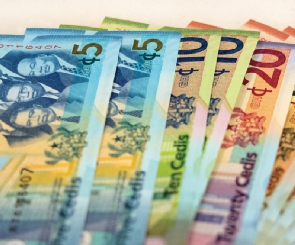The exchange rate uses demand and supply forces to operate. An increase in the demand for a foreign currency increases the price at which it will be sold.
When the demand decreases the value goes down as well. However, when the demand of a currency outweighs its supply it puts pressure on the local currency thereby reducing its value.
SSD/FNOQ
Read the full story originally published on December 8, 2021, by GhanaWeb
How would a change in the exchange rate affect me?
Interest rates affect the prices
What determines the exchange rate?
For us Ghanaians, the exchange rate is simply the amount of Ghana Cedis we have to give up to acquire a unit of a foreign currency.
So, for example, if you have to give up GH¢6 to get $1, the exchange rate of the Ghana cedis (GH¢) to the dollar ($) is GH¢6.
On the other hand, for a traveller coming to Ghana, the exchange rate would be the amount of the currency of his country of origin that he would have to give up to get GH¢1.
For instance, with $1, a traveller from the US can get GH¢6, so the exchange rate of the GH¢ to the $ is approximately $0.17 - to get GH¢1, and traveller must give up $0.17.
If you have stayed in Ghana all your life and does not travel, why should you be concerned by the exchange rate?
You should be worried because the exchange determines the price of the majority, if not all, of goods and services in Ghana because most items are either imported or manufactured using imported inputs.
If you want to buy a phone made in the US which cost $1000 and the exchange rate of the GH¢ to the $ is GH¢6, the cost of the phone in GH¢ would be GH¢ 6000 (GH¢6 × 1000).
Should the exchange rate increase (the cedis depreciate) to GH¢ 8 for a dollar, then the new price of the phone would be GH¢ 8000 (GH¢8 × 1000).
When the rate decreases (the cedis appreciate) to GH¢4, the phone would cost GH¢4000 (GH¢4 × 1000).
Now, what causes the exchange rate to either increase or decrease? The demand and supply of the foreign currency, the dollar as an example.
The demand of the dollar is determined by the quantity of the goods and services imported to Ghana while the supply is by the quantity of goods and services Ghana exports.
So, any time Ghana’s demand for imports exceeds exports, the exchange rate would go up (the Ghana cedis would depreciate) which is the case always.
For instance, a study by Konfidants Ghana showed that 82 percent of items in Ghanaian supermarkets are foreign brands.
Successive government have put in measures to ensure that the gap between our export and import is bridged including the setting up of the Free Trade Area where companies enjoy various incentives provided, they would export at least 70 percent of their products.
But this is not enough for Ghana to properly stabilize the price, there has to be a concerted effort by all, the government, private sector and households to patronise made in Ghana goods.
Business News of Thursday, 8 December 2022
Source: www.ghanaweb.com

















